Generation 'FNL'
by Sarah Blackwood
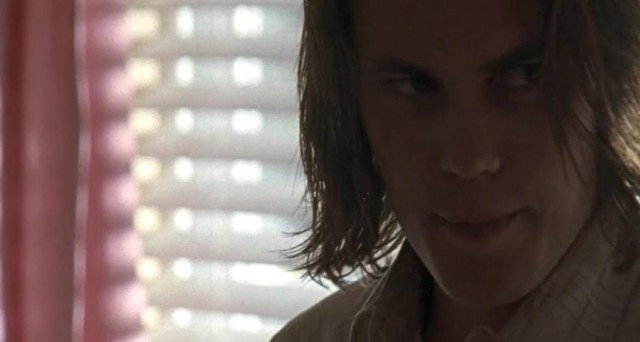
I was born in Houston, Texas. By the time I was three years old, I was living in New Jersey for the long haul. My family has no true roots in Texas, so leaving it was not a major upheaval. My father always said that Texas was the best place he ever lived. Maybe it was the best place I never really lived. This weekend, the story of the best place that none of us have ever lived — Dillon, Texas — comes to a close. After five seasons, “Friday Night Lights” finishes up, sending those ochre-tinged Texan spaces that have come to feel like home into cold blue digital storage.
“Friday Night Lights” never garnered much of an audience for a network show, and only a semi-wacky deal where NBC would let DirecTV run the season months before the network allowed the show to stay on the air. No doubt one reason for the small audience is that it did not lend itself to easy demographic parsing. Who is this show for? Middle America? Teens? Sports fans? Viewers who had a hard time with this question just didn’t tune in. Fans trying to address the problem were heard, in bars across Brooklyn, crying out “but it’s not really even about football!” (this most often shouted by the cool kids who pat themselves on the back for having fled the cool kids from their hometowns).
“FNL” is about football in the same way that Ulysses is about perambulation. Also, “FNL” is about: hometowns, teens, adults, the city, the country, the rich, the poor, huddled masses, yearning, hard-core Christian rock, girls with long legs, nachos, rich farmland, and men wielding pink plastic bicycles against doofus TAs who have seduced their daughters.
One way you could put it is that “FNL” is about how silly, even tragic it is to be “about” something. How freeing it can be to turn your back on what you are supposed to be or to like. It points its fingers directly at self-professed “sophisticated” media consumers and asks us: “Don’t you like things that are beautiful?”
It was never clear whether “Friday Night Lights” was a teen drama or an adult saga, and I think of this as part of the show’s genius. To put the case more vulgarly, as a thirty-something viewer, I have, in turns, had the hots for both high school fullback Tim Riggins (the glow of youth! We could practice SAT analogies together!) and Coach Taylor (growly adult man-man!). Let’s not even get started on Tami Taylor and her cowboy boots. Unlike so many television shows, “FNL” was always able to hit that sweet spot where teenagers are beautiful in their raw inarticulateness and adults are, like, heartbreakingly attractive in their desire to take care.
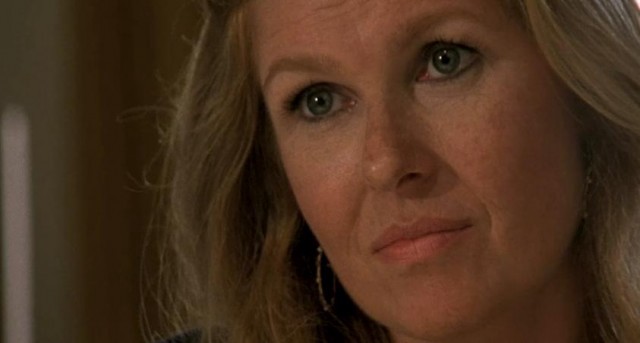
For me, the show was best when it drew you into one world, only to have the other suddenly come into view, redrawing the boundaries of whatever reverie (you as head cheerleader, you as embattled school principal) you were floating around in. Case in point, Season Two opens on the town public pool, where various packs of barely-dressed teenagers flex and sway and ogle one another. The pool is the perfect figure for the seething flow of hormones coursing through these kids, the way sex and youth makes you feel weightless, elated. But humans also like pools for other more amniotic reasons, and as Tami Taylor waddles in, just about ten months pregnant, the needle comes skipping off the record, and the kids stop to stare. This is what can happen when you seal the deal, sex-wise. I mean, look at that lady! “There ain’t a room big enough to contain me,” Tami trills at her mortified lifeguard daughter, and eases herself into the water.
The series finale — this is not going to wreck anything for those who haven’t seen it — features a scene between eighteen-year-old Julie Taylor and her high school love Matt’s grandmother, the wrinkled and senile Grandma Saracen. Julie’s Botticelli hair and naturally-collagen-rich face press into the old woman’s shoulder as they embrace. Grandma Saracen — whose life has reduced concentrically until it resides nearly exclusively in a rocking recliner, on a linoleum floor, in front of a television, in a shotgun house in small town Texas — flutters about with joy over the life that spreads out in front of the girl. Julie does not recoil from or judge this truth, how small one’s world might or might not get at the end, and I think we are meant to realize that her proximity to this small life is what will help hers bloom.
I’ve covered “Friday Night Lights” for Television Without Pity for the entirety of its run, so you’ll forgive me for being slightly overwrought when I reflect on how this show has ushered me from the extended adolescence of my late twenties to this moment right now, as I try to get my shit together before I have a baby next month. Let me tell you, Gestational Time is Odd Time, it expands and collapses multiple times per day, so that one minute you have all the time in the world and the next you realize how quickly you are hurtling through space toward this end that you can do nothing to headfake around.
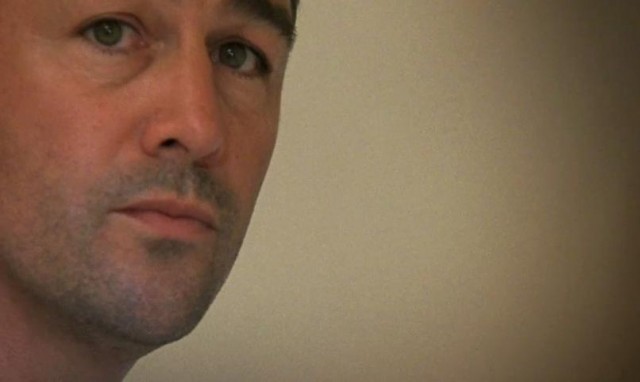
And this is basically what “Friday Night Lights” talks to us about, how time moves so strangely, how we go from late nights drinking beer and messing around in a deserted field with our friends, our problems seemingly so huge, to late nights drinking wine with a partner, the very hair on our heads weary, our problems seemingly so huge. The thing that the show did so beautifully was refuse to belittle any of these micro-times that we all pass through during a life lived.
I don’t know exactly when it was that I started feeling like I had a past, but whenever it was, it was a sad and wonderful day. Once you have a past, you can always go back (in your mind) but you can also never go back (am I really ever going to see dawn from the wrong side again?). “FNL” makes me feel the way that one LCD Soundsystem song about friends makes me feel. Like once I danced all night in a condemned loft with my friends but now I do not. Both of these things are totally okay.
So I have a proposition: let’s all watch the series finale. Then we can meet out on the field in the dark. We’ll toss the football around a bit and shoot the shit, crickets sounding in the background.
Sarah Blackwood professes about literary stuff in Manhattan and watches a lot of television in Brooklyn. She’s had the same online blog journal, Drunken Bee, for seven years because she doesn’t really understand Tumblr.
Minnesotans Doing Anything for Money
by Abe Sauer

Big day for Minnesotans. First, Governor Mark Dayton “siren.gif”-capitulated to the deadlock over the budget and offered to accept the GOP’s pre-shutdown proposal. Except, now the Republicans are, like, “Uh, we didn’t, you know, really mean that.” (Probably because the GOP proposal is to borrow more money.) Ending the state shutdown would mean that the sheriffs who have been issuing concealed handgun permits through the shutdown will now again be able to do the mental health background checks that had been unavailable for two weeks. (Worse fates face the state.)
Meanwhile, one state to the south, Minnesotan presidential candidates are putting together their own revenue-raising proposals. But Tim Pawlenty and Michele Bachmann have taken entirely different tacks.
ESPN’s documentary series 30 for 30 is an award-winning look at the pride, prejudice and passed over of athletic history. It’s highly recommended.
The popularity of the series is probably why Tim Pawlenty’s latest fundraising email (from Pawlenty’s Iowa campaign manager, and Mike Huckabee’s daughter, Sarah Huckabee) is titled “30 for 30,” asking “With only 30 days to go until the critical Iowa Straw Poll, can I count on you to help our efforts with a $30 donation?”
Huckabee is just the beginning of the “Jesus” portion of Pawlenty’s campaign. In a recent radio ad, Pawlenty mentions his mother’s death when he was 16 and asks Iowans to visit PawlentyFaith.com to watch a six minute video called “The Five Pawlentys You Meet in Heaven” “Aspirations of a President.” But it turns out that faith he leaned on at 16 was his icky Pope-faith. Wife Mary fixed him of that.
Speaking of hating the Pope, Michele Bachmann’s fundraising email, sent within 15 minutes of T-Paw’s, titled “Let’s show Whoopi we won’t stand for her attacks!,” shot back at “The View” host’s characterization of her position on single parents: “As the daughter of a single parent, I learned firsthand the difficulties of growing up with one parent.” (Just like Obama!)
Proving Bachmann doesn’t read all of her own press, she called Goldberg’s attacks “a new low.”
More forward-looking than Pawlenty, Bachmann launched what you might call “40 for 24,” a goal to leverage the “View” controversy to raise $40,000 in a day.
But the kill shot is the graphic in Bachmann’s email.

Why Bachmann even puts words in her emails is anyone’s guess.
Two Poems By Heather June Gibbons
by Mark Bibbins, Editor
Mistaking Small for Faraway
Blew up a latex glove until it was a fat fist with nubs
or the idea of a blowfish or a papier-mâché turkey
wet newspaper plastered around the space you blew up
the last time you blew things up with your mouth.
Looked for the rare turtle through binoculars
and saw an eyelash, looked for the Death Star
through a microscope and saw a seed, like when
the wrong answer is so close to being right
it’s somehow more wrong. There is a fine line, indeed.
The first time I saw someone stealing it was
strawberries, the first time I stole it was flowers
through chain link, the ones I could reach.
In the cafeteria, they serve sheet cake on Bakelite.
We crowd a semi-circle of pastel chair–desk combos.
A banner over the door to the girls’ bathroom reads:
If You Could Go Back In Time…I wouldn’t.
We pass around class photos from years ago
before our voices had corners. My gutsy alto
made me a shoe-in for the role. The director
was wary, but praised my gumption. How timely
how present on set. Played “Hail the Conquering Hero”
on the piccolo while admiring the pink-tinted sky
how unseasonable, how nice. Forget the scraping
sound our veins made and the bleach burn
and the intricate paper snowflake we cut into
from too many sides until, unfolded
it fell apart, little copies of a lesser design.
Remember, this was not the first time.
Caller
Call me Jordan and cross me
Give me a brand-new vintage mouth
Message left in an amateur tongue
Two down and one to go, whiff
Of rubbing alcohol, swoon of ether
Grit of the crushed biting fly
Call me wifey to activate me
Peerlessly perilous and burning again
Like the old days, to whimper
And want wanting, shovel-shaped
Cleaved like a heart, a hooker
With a heart of gold putting
An oxygen mask over a child’s face
I bite my tongue underwater
Don’t do cold calls, don’t bear
A passing resemblance, flicker
By firelight, cur scratches in dust
Web strong enough to span
Canyon wind and the microscopic
Tunnels and tuneless instruments
Of ardor memorialized, I see
Tiny buttons by the green glow
Of the touch-tone, I will return
When the vibration in my jaw stops
Save a seat for me at a watchful
Distance, save a space for me
In the girl-shaped procession
Call the place diametric cityscape
Call my hairdresser Amber
And this ringer a braincase
I call the formlessness beloved
I pray to God for a sister
I say, make her just like me
Make her answer to my name.
Heather June Gibbons’ poems have appeared in Gulf Coast, Blackbird, Third Coast, Juked, Southeast Review, Cincinnati Review, New Ohio Review, Drunken Boat, Pebble Lake Review, and elsewhere. She holds an MFA from the Iowa Writers’ Workshop and teaches creative writing and literature at Purdue University.
For more poetry, visit The Poetry Section’s vast archive. You may contact the editor at poems@theawl.com.
A Tribe Called Quest: The Time They Nearly Kicked It
A Tribe Called Quest: The Time They Nearly Kicked It
by Thomas Golianopoulos
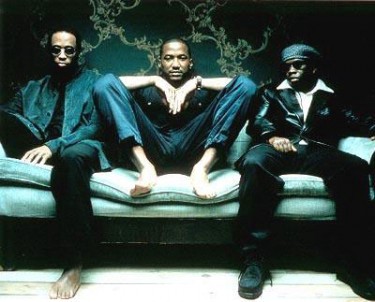
There are some great moments in the new documentary Beats, Rhymes & Life: The Travels of A Tribe Called Quest: Q-Tip revealing the drums he sampled for “Can I Kick It?”; Black Thought of The Roots clowning Tribe’s early fashions (“They were wearing some real questionable-type shit,” he said, referring to their dashikis); and Busta Rhymes’s smile when reminiscing over “Lyrics to Go,” his favorite Tribe song. There is also a slew of rare archival footage from the late ‘80’s and early ‘90’s. (Check out the mullet on Dennis Miller!) Even though the documentary occasionally sinks into VH-1 “Behind the Music” territory, the director Michael Rapaport did a fine job chronicling the group’s history, its dynamic and what made them so loved. He got lucky too, filming during the group’s tense 2008 reunion tour.
A Tribe Called Quest (or ATCQ, or Tribe, as some call them) broke up after a quick, steep decline in fall 1998, on the eve of their fifth and final album, The Love Movement. Their first three albums — People’s Instinctive Travels and the Paths of Rhythm (a.k.a. The Playful Debut), The Low End Theory (The Cohesive Jazzy One) and Midnight Marauders (My Second Favorite Rap Album Ever) — were all excellent and fun. It started coming apart on 1996’s Beats, Rhymes and Life (The Glum, Lifeless One). Part of the problem was the unraveling relationship between lifelong friends Q-Tip and Phife.
Sometime in 1993 after finishing Midnight Marauders, Phife moved to Atlanta. The musical chemistry was gone. From there, it got rockier — chief amongst his gripes, Phife says that Q-Tip disbanded Tribe. He and Ali had no choice but to go along with it. The documentary caught the collapse of the friendship as it foundered during the later tour. A collapse that, as I learned watching the documentary, I had played a role in.
A few months back, a colleague, who’d seen an early screening of the film, told me that there was a scene about a Q-Tip interview in Spin. I pressed him for details but he didn’t remember. He told me to just see the movie. A few weeks after that, I sat in a screening room at the Sony building on 5th Ave.
The movie gets a little depressing when chronicling the 2008 reunion tour. At the time, Phife was in poor health, undergoing dialysis three times a week for Type 1 diabetes and lethargic from low blood pressure. During an August 9th show in southern California, he even leaned on Jarobi, the numinous founding member who split in the early 1990’s, while performing “Find a Way.” That’s when Q-Tip adlibbed “Look alive, look at Phife Dawg.” It reads badly but didn’t come across as an insult, at least to this viewer. Phife, however, took offense and an argument erupted days later before a August 16 show in Mountain View, California.
“Fuck you, Kamaal,” Phife said, shouting the name Q-Tip has used since converting to Islam in the mid-90’s. More screaming followed. It’s unclear in the documentary if there was a physical confrontation.
Later on, Phife revealed that between the two shows, he’d read an interview with Q-Tip in Spin. “I see Spin magazine with Q-Tip on the cover, lemme check out,” Phife said in the film. He then reads from the interview, “’I never had a problem with Phife.’”
“He kicked me under the rug,” Phife said. “Stop throwing me under the bus in interviews.” And that’s when I squirmed. You see, I was the guy who interviewed Q-Tip for Spin.
***
It’s strange meeting a childhood hero as an adult, especially when it’s work-related. Ice Cube was cool. I haven’t interviewed Don Mattingly. I hope to never cross paths with Magic Johnson. I had his poster on my wall.
In June 2008, I met Q-Tip in a truck parked on W. 53rd St. outside the offices of Universal Records and he played me songs from his then-upcoming album The Renaissance. A few days later, we sat down for our chat for Spin. I’d interviewed him a few years earlier (more on that later) but was still anxious — those were the only times I’d been nervous while conducting an interview with a musician. (DMX scared the shit out of me once but that was initiated by his driving.) But of course I was nervous: A Tribe Called Quest were my favorite group during my formative years. They were my Beatles. They were my Michael Jackson. In 7th grade, my sandlot baseball team would celebrate a win by singing the “Scenario” chorus in the dugout (“Here we go, yo. Here we go, yo. So what, so what, so what’s the scenario.”).
Q-Tip was a good interview. He took long pauses and gave frank, detailed answers. Our conversation touched on many topics, but we spoke a lot about A Tribe Called Quest. (The Spin interview is a long-form career-retrospective Q&A.; As the writer, you’re gunning for introspection and not just promote-my-album pull quotes.) The group were touring that summer and Q-Tip’s relationship with Phife seemed like an important part of the story.
I asked: “How did you and Phife mend your friendship?”
And Q-Tip answered: “I never really had problems; he more had problems with me, because I was the type of person who would voice my opinions. He viewed me as this kind of figure [in the group]. Every issue I had with him, I would say it, and it would be done afterward. I wouldn’t let it affect me years down the line. But I always had love for him and continue to have love for him.”
It made it into the magazine and a few weeks after the issue hit newsstands, Q-Tip vented on Twitter:
“I just wanna say on record…FUCK SPIN MAGAZINE!!”
“I never ran a ‘Hollywood set’ and if that is ur main heading 4 me after a 18yr career yall have been to busy sucking up to the pseudo-hi…”
“Yall got a bunch of folks to try to shit on black artist (d’angelo, ms. Hill) and get one folk to try to shit on me…”
“I rarely read shit on myself but was forced to and yall really don’t give a fuck..”
“I never went anywhere I’m comfortable and I’m good … Oh and once again FUCK SPIN!”
“Will I be welcomed back as an M.C. Elder” please!!! I won’t pull rank but yall know what the fuck it is…
“I’m sorry yall but I just had to let yall know that spin is a b rated cracked magazine and I’m sure..”
“They will continue to shit on me by way of reviews, ect..So kick rocks”
What made him so upset? At the time those Tweets appeared, I had no idea. Our follow-up interview was a little contentious because I’d asked some dumb, obvious questions but that wasn’t it. After watching Rapaport’s documentary, it’s clear why Q-Tip was “forced” to read the interview. He’d nearly lost his childhood friend over it.
***
I first interviewed Q-Tip in the summer of 2005 for a profile in XXL magazine. It had been six years since his solo debut Amplified (The Much-Maligned Commercial Reach That Has Aged Well). In the meantime, he recorded Kamaal the Abstract (think The Love Below meets Electric Circus, I guess) and a more traditional rap album, Open. Both were never released. The crux of the interview was about that hiatus, the different expectations placed upon rap and rock artists and how technology affected the music industry. (This was around when MySpace was getting started.) We hadn’t talked about Tribe but that was on the agenda for next time.
In the meantime, I decided that since no one had written the ATCQ break-up story, that was going to be shoehorned into my Q-Tip profile. I lined up secondary interviews and spoke with Tribe’s engineer Bob Power, their former manager Chris Lighty, Phife and Q-Tip’s cousin, the rapper Consequence. I got good stuff from Phife. He talked about how management and the label Jive Records neglected him, mostly communicating through Q-Tip. He also admitted that he’d leaked reunion rumors a few years earlier. Phife was honest with me but leery. Consequence was a little more reckless.
Consequence, who’d first appeared on a rare Tribe remix, was one of the reasons why Beats, Rhymes and Life was ATCQ’s worst album. While a capable rapper, he’s distracting on the seven songs here — it further muddled the group’s chemistry. His presence in the group had greater, ahem, consequences. “Q-Tip put me in A Tribe Called Quest. It was his decision,” he told me back in 2005. “It might have been better if Tribe put me in Tribe, but Q-Tip put me in Tribe. That is the truth. It didn’t really sit well with Phife.”
I asked Phife about it. “It wasn’t a beef between me and Consequence,” he said in 2005. “The beef came because I felt, this guy is a new artist. Since we were doing a Tribe album, I had no problem with him being on three songs and getting his shine on so the rest of the world can scratch their heads and say he’s nice. But he was on six, seven songs. I know everybody was going to look at it like, ‘this ain’t no real Tribe album, who’s that new kid.’ I think Tip over did it by having him on all those songs. I thought about it and I could be wrong but I felt like that was his way of etching me out. We had a conversation about it and he said it wasn’t so but I don’t think you can blame me for seeing that way. Maybe I was wrong, but that’s how I felt.”
(The Q-Tip follow-up interview never happened because his album, then called Live at the Renaissance, didn’t have a firm release date. My editor only wanted to run the story if it was pegged to the album. I never submitted a draft and the piece was killed.)
Whatever their initial coolness, Consequence and Phife quickly became friends, bonding over sports and video games. But Consequence wasn’t on The Love Movement — and he is barely in the new documentary too. One of the few mentions of him in the entire film is when Barry Weiss, the former head of Jive, listed the problems with Beats, Rhymes and Life. “Why is Consequence on the records? Who brought him in? What does he have to do with it?” he asked rhetorically. Not following up on those questions was the film’s glaring flaw.
Since those days, Consequence has evolved into a really good MC. It might sound corny, but I wish he were a more respected and successful artist. Apparently, he’s no longer affiliated with Kanye West, who he’d been running with for the past decade. That’s a shame; clearly, he influenced West’s rapping. (see, “The Good, The Bad and The Ugly” and “Grammy Family”).
In the documentary, his only line comes on the roll call during the closing credits. He says, “I am Consequence of A Tribe Called Quest.”
***
Beats, Rhymes & Life: The Travels of a Tribe Called Quest was released last weekend in New York and Los Angeles and is at 91% on Rotten Tomatoes. Over the past few months, Q-Tip feuded with Rapaport over it and judging from statements in the press, it seems Q-Tip was uneasy about the film’s tenser moments. “My intention wasn’t to ever make them feel uncomfortable but my intention was never to make a fluff piece so we kind of hit a bump in the road,” Rapaport told MTV earlier this year.
There is no bad guy in the Tribe break-up story (well, maybe Jive Records) or in the film, which ended on a positive note: Phife received a kidney transplant from his wife, reconciled with Q-Tip and the group performed in Japan last summer. During the filmed rehearsals for that show, Q-Tip and Phife practiced a dance move to “The Chase, Part II.” It looked like such effortless, goofy fun.
The scene reminded me of the photo shoot for the killed XXL story. Q-Tip was hooping with some kids at a basketball court in Jersey City. They were young, about junior high school age. After ten minutes or so, one said, “That ain’t no basketball player; that’s a rapper.” By that point, a group of older women had congregated and were hollering at Q-Tip. He took pictures with them and some little girls. Everyone had a blast.
Later that afternoon, I told Q-Tip that I recently went to Strata, the Chelsea venue where he’d DJ’d earlier that summer.
“I was in Japan,” he said. “How was it?”
“The DJ played lots of Jagged Edge. The crowd was feeling it when he played some Brand Nubian though.”
“Good. Come back tomorrow. There’ll be lots of heads there.”
The make-up artist, a pretty woman in her 20’s, walked over to us. “Where do you spin at? Table 50? I used to have a blast there.”
Q-Tip looked over at me and smiled. “See,” he said. “I make people have blasts.”
Thomas Golianopoulos is a writer living in New York City whose work has appeared in The New York Times, New York Observer, Spin, Vibe and a few other places. You can follow him on Twitter.
Mouth Robot Used For Extremely Disappointing Purpose
I mean, SINGING? Really? This is what we’ve been using all our Science for, to make a mouth robot that sings? I expected so much more from you, Japanese scientists. [Via]
"My family is eating stir-fried dandelions out of yards to keep from starving."
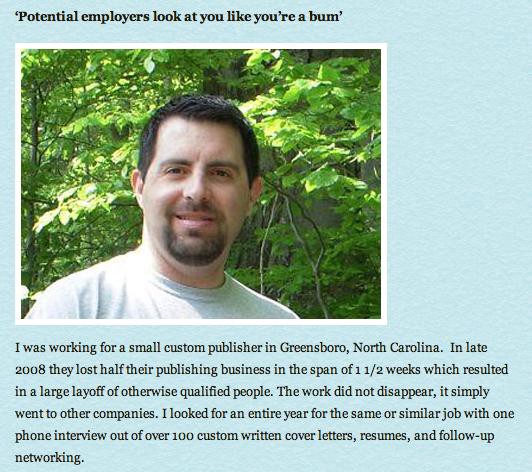
What are we to do about the disgusting plan to keep America’s unemployment high? Since we’re not marching on Washington, the right and the left aren’t unifying on this issue on which we both agree and basically no one in the business world cares in the slightest, all we can do is create a few jobs ourselves and also keep putting out there what’s really happening, which Yahoo!’s The Lookout is doing admirably. They’ve created a Tumblr where people tell their stories — lots of people. They got thousands of letters when they asked people to tell them what’s really going on. You could just start here at the imposing wall of stories, or maybe you’d like to start with this one and page back.
People With Money Will Still Buy Cigarettes
“Wealthy people and adults ages 25 to 44 aren’t deterred by cigarette taxes, continuing to light up despite the climbing price of a pack, a new Canadian study finds.”
The Replacements 1984-1987, In Order

33. Tommy Gets His Tonsils Out
32. Lay It Down Clown
31. Red Red Wine
30. Seen Your Video
29. I Don’t Know
28. Gary’s Got a Boner
27. Shooting Dirty Pool
26. I’ll Buy
25. Waitress In the Sky
24. Dose of Thunder
23. We’re Coming Out
22. I.O.U.
21. Nightclub Jitters
20. Hold My Life
19. Kiss Me On the Bus
18. Sixteen Blue
17. Skyway
16. Little Mascara
15. Alex Chilton
14. Black Diamond
13. I Will Dare
12. Bastards of Young
11. The Ledge
10. Left of the Dial
9. Favorite Thing
8. Androgynous
7. Nevermind
6. Answering Machine
5. Unsatisfied
4. Can’t Hardly Wait
3. Swingin Party
2. Here Comes a Regular
1. Valentine
Magical Cocktail Becomes Other Cocktail
I guess I am not in principle opposed to “cocktails that change from one drink to another while you are drinking them,” but if you really wanted to dazzle me I would like a Manhattan that turns into another Manhattan just as I am about finished with the first. [Via]
